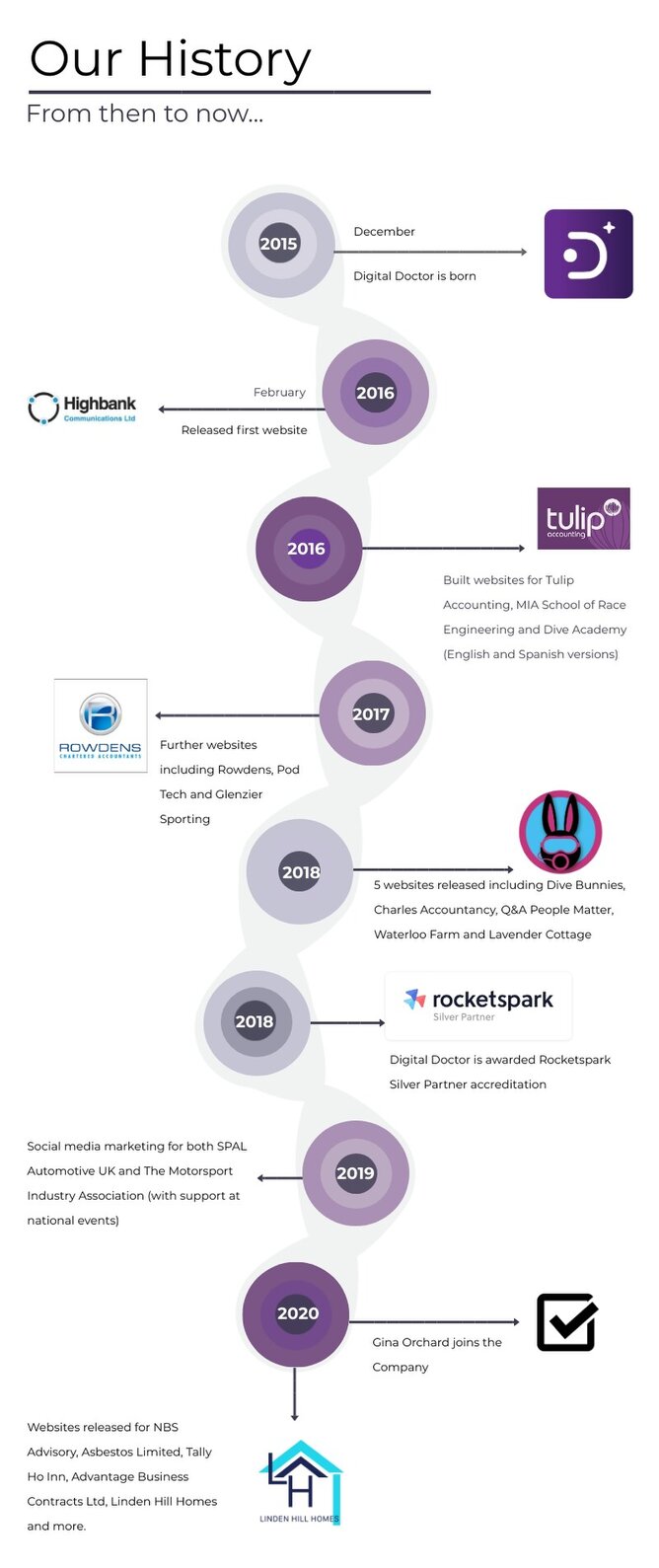We look at the data available which demonstrates that blogging can really add value to your business.
Our first blog, 'Blogging: How do I include a blog into my marketing strategy?' looked at the different approaches of Inbound (content) Marketing vs Outbound Marketing.
You’ve now got your head around blogging and think content marketing is the way forward for your business (great - because we do too). But how are you going to sell this approach to your colleagues and get them on board with you?
(And if you want to cut to the chase and follow our guide on the nuts and bolts of writing a blog, read, 'How to write a blog brilliantly'.)
Reasons to blog
The Curious Elf (she demanded Capital Letters) at Digital Doctor has been looking under toadstools and done a little bit of research on your behalf. Here are just a few interesting facts that will help you to sell it to colleagues:
- According to Demand Metric content marketing costs 62% less than traditional marketing approaches and will generate 3 times the amount of leads.
- Companies that focus primarily on content marketing have more successful conversion rates than those which rely on search engine rankings in Google - the success rate is up to 5 times greater.
- Hubspot data shows that businesses wot blog are 13 times more likely to see ROI and 60% of consumers feel more engaged after reading a blog.
- 82% of marketeers who blog consistently see an increase in inbound links and higher search engine rankings (State Of Inbound).
- Companies who produce 16 or more blogs per month see 3 ½ times more traffic to their website per month compared to those who only blog up to 4 times a month (Hubspot).
About the blog
We’re now anticipating the next questions for you - who’s going to write the blog, what messages should we be conveying, who’s going to read it? Curious Elf has been peeling back the moss:
- Research suggests (Search Metrics) that the blogs which rank top of Google average between 1,140 - 1,285 words.
- On average, the majority of companies (82%) only write blogs of 750 words or less (Curata). This tells our elf is that there needs to be an investment of time and the blog needs to be of a decent length (we’re only up to 350 words so far in this blog to give you a clue).
- The average blog takes 3 hours, 16 seconds to produce (Orbit Media) and...get this....
- ...NewsCred says the median time for reading a blog is 37 seconds. All of us skim read to a certain extent - that’s not a lot of time to capture interest in your blog and arguably, the amount of time it takes to produce the blog seems to far outweigh the audience’s time investment, but:
- Businesses wot blog are 13 times more likely to see ROI and 60% of consumers feel more engaged after reading a blog.
So you’ve now managed to send your colleagues to sleep with all the stats and data and they're going to wonder why their business is suggesting it adds to the 4 million blogs posted online every day.
Here’s the touchly, feely bit…
- Presenting your audience with regular/consistent blogs positions your company as the expert in your industry - that’s good news when clients are looking for advice and information.
- Take the stance that you are helping the buyer to make assessments; you’re helping them with their research.
- Position the company as being open - blogs establish trust - converting into high quality leads.
- Your blog will stimulate discussion - clients are engaged.
- Google loves fresh content - not only will your blog benefit from SEO and come higher up search engine rankings but your content populates your website - it’s a win-win.
Add a personality to your blog
And prepare your colleagues for the next fact -
Web users prefer to see photographs of real people rather than stock photos on websites. We don’t want to hear what you had for dinner last night (or even a picture of it), but perhaps an outward bound staff challenge, perhaps a charity initiative or Petunia from marketing has run up and down Ben Nevis 5 times in one day (that’s probably not possible) - but you get the general idea.
Set the tone of your business - are you fun, serious, innovative, nurturing, ambitious? Present your audience with the personality of the business that you want to convey. Think about adding a social/human element to your site.
Infographics
Develop ways of putting more infographics into your blog to make it dynamic and interactive. While Curious Elf is in her stats mindset, according to Unbounce, the use of infographics in blogs has increased by 800% over the past year.
Take a look at our infographic as an example:
Curious Elf has got ahead of herself and is delving into the detail of what makes a good blog (this will form part of our next blog). But - what we have established is that Inbound Marketing is a good thing and worth investing in and that consumers prefer to learn about a company through content marketing (personalised if you can) and will be put off by paid ads (outbound marketing).
Blogs give you the opportunity to establish credibility - more so than on a social media platform. You’re being informative rather than pushy, divulging juicy snippets about your product and helping potential customers who are looking for solutions to a problem.
Promoting your blog
Bear in mind that the successful blog will need to be promoted. Just writing a blog and posting it on your website will not extend your company’s reach. So although Curious Elf has told you that promoting your business by way of paid ads on social media risks turning your clients to another site, you will need SM to announce your blog.
Facebook and LinkedIn are currently the most popular platforms for marketers, with an 87% joint share. You can’t rely on email marketing your blog - think about other channels for reaching out to more than your existing audience - Facebook Live and YouTube are seeing growth in this area and it’s easier for your community to share what you’ve posted. If you also transcribe your video content and post that on your blog you’ve also added new content - and hence we’ve come full circle.
So to sum up - a blog will provide value rather than attention but your long term goal is client engagement.
Blogging costs less than traditional forms of marketing and provides leads of high quality. Maybe you only have 37 seconds to get your point across but if you feature blogs regularly and they are specific and relevant you have the opportunity to gain trust.
Congratulations!
You’ve managed to convince your Zoom buddies that blogs are the way to go - we will show you how to start putting blogs together in our next share.
(And Curious Elf was anticipating your final question - yes, this blog contains 1,100 words so we really do practice what we preach!)
If you’re interested in getting more information from us at Digital Doctor and find out how we can help you run blog campaigns using the Rocketspark platform then contact sarah@digital-doctor.co.uk.




